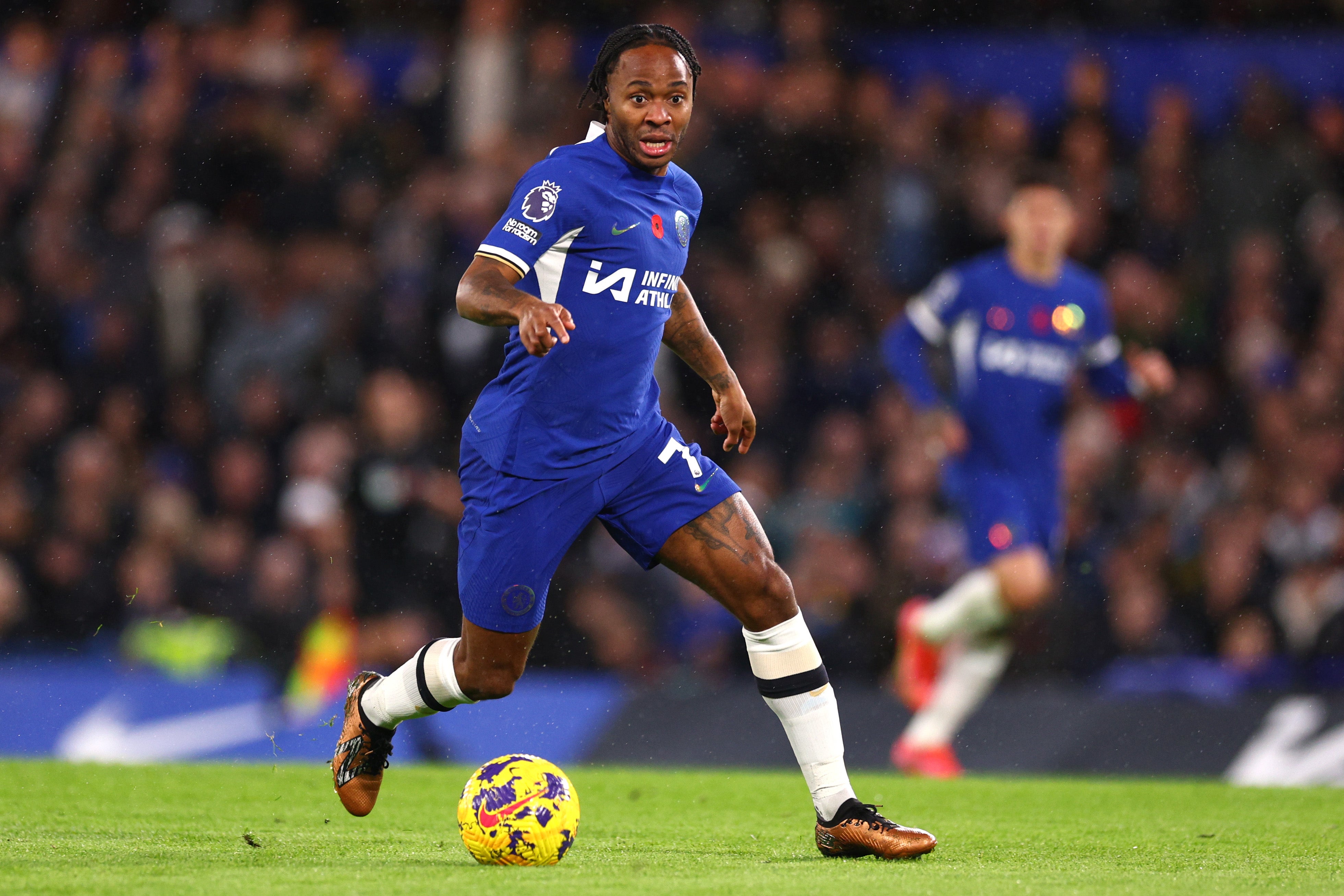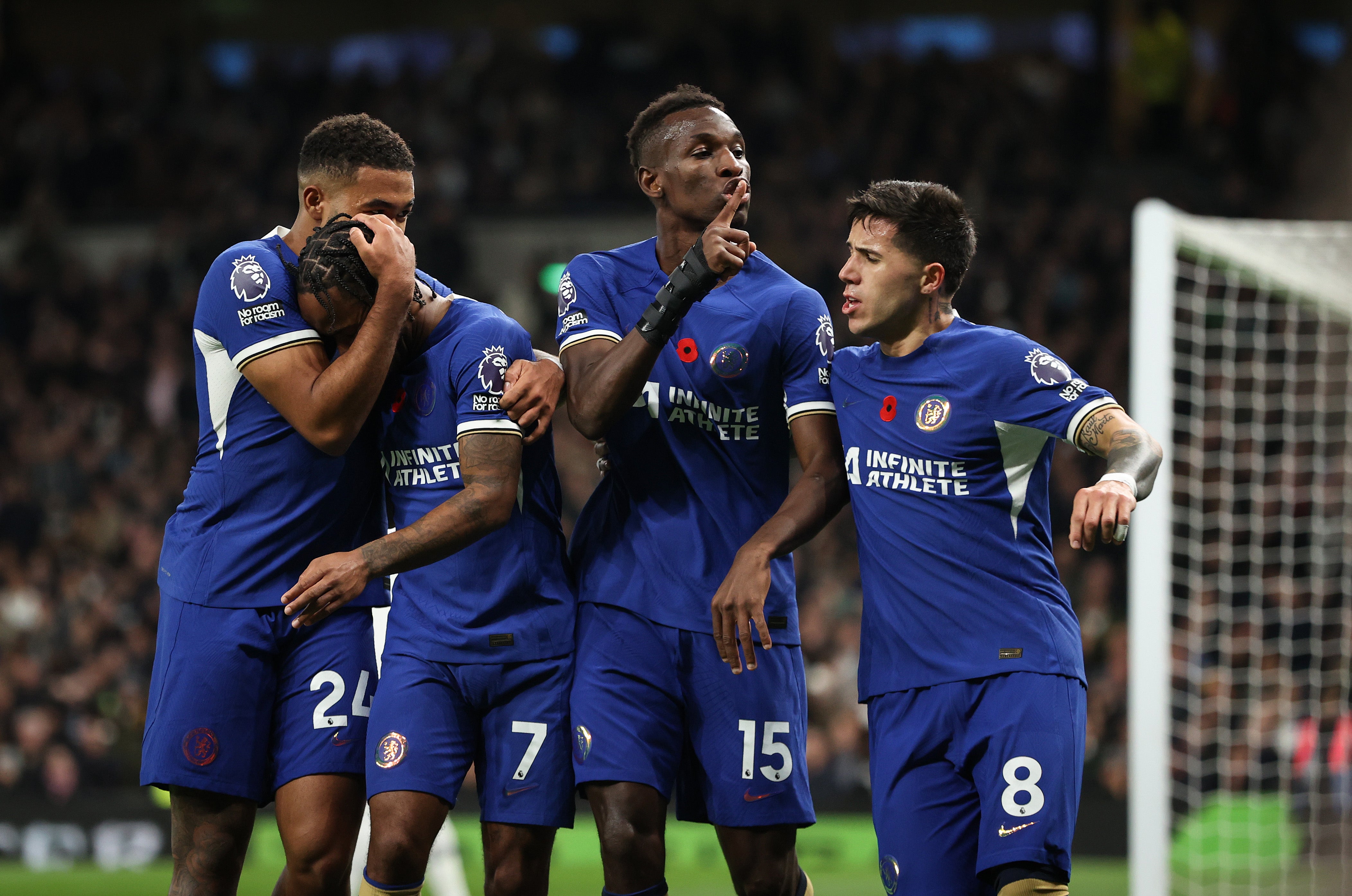The two key elements Mauricio Pochettino has brought to revive goal-shy Chelsea
After a sterile year, Chelsea have shown an ability to rise to the occasion and there are finally signs of attacking excitement and strategy at Stamford Bridge
A weird game was not a one-off. Not in one respect, anyway. With Tottenham reduced to nine men, their defence pushed up to halfway, affording acres of space to Mauricio Pochettino’s fast forwards, Chelsea eventually worked out how to spring an offside trap. They scored four goals.
And then, for the second time in a week, they did it again. Against 11 men. Of Manchester City, the treble winners, the team who had not conceded four in a match for more than three years, who had only been breached four times in a match once since January 2018.
Two spectacular scorelines – Tottenham 1 Chelsea 4, Chelsea 4 Manchester City 4 – may mark a sudden turning point at Stamford Bridge, halting the dramatic decline, kickstarting a revival. But whether or not that proves the case, the sheer volume of goals stands out still more, given the barrenness of Chelsea’s recent history. They were the club who spent more to score less; especially against the top teams.
Last season, they played 14 games against the established members of the big six, plus Newcastle (as they drew City in both cups, they faced them four times). In those 14 matches, they scored six goals, the same number they mustered against City and in injury-time against Spurs this week alone. Kieran Trippier was Chelsea’s joint top scorer against big-seven opponents last season, with one own goal.
Come the defining games, Chelsea were utterly impotent. That reflected in part the confusion that enveloped Stamford Bridge and the sterility of their football under Graham Potter. Of those six goals Chelsea got against their supposed peers, three came under Frank Lampard and two in Thomas Tuchel’s only such encounter before being sacked. Potter’s return was one in eight games, and even that was a penalty.
Yet even before then, Chelsea were scarcely prolific on such stages. Tuchel forged a champion team in 2021 that proved very capable of winning major matches, but they tended to be low-scoring affairs based on control and defensive defiance, not free-flowing football.
Monday was the first time Chelsea had scored four against elite opposition since Tuchel’s Champions League winners beat Juventus 4-0 in November 2021; they had not done so against one of England’s top teams since a trip to Azerbaijan and the 4-1 Europa League final win over Arsenal in 2019. It was sufficiently long ago that the Chelsea manager was Maurizio Sarri.

And if the subsequent period includes the failure of Romelu Lukaku’s return, a host of Timo Werner misses and an inability to work out what a Kai Havertz was or what to do with one, their recent return feels more remarkable because of the continued absence of a clinical striker.
After spending £1bn in the Todd Boehly era, the only real candidate for that title was a declining Pierre-Emerick Aubameyang. Pochettino has been impeded by the absence of Christopher Nkunku who, if scarcely the archetypal penalty-box poacher, at least scored 58 times in his last two seasons with RB Leipzig. It should be uncontroversial to suggest that Chelsea would have more goals but for his knee injury.
They have had the chances: a tally of 21 goals is an underperformance of the third-highest xG in the division but also a product of Nicolas Jackson’s misses. Even when the Senegalese scored three against Spurs, Pochettino thought he could have had six.
And if, in different ways, the win over Tottenham and the draw with City had freakish elements, it is worth bearing in mind that Pochettino’s team also struck twice against Arsenal, once, and with the potential for more, against Liverpool. It is a separate issue that they have found it harder to score against Nottingham Forest and Brentford but, with 11 goals against the current top four, Chelsea have shown an ability to trouble the finest sides.

It reflects the pace in their side, but also Pochettino’s bolder ethos. It may separate him from his recent predecessors: Tuchel has had buccaneering sides elsewhere but was more cautious at Stamford Bridge, Sarri and Lampard had attacking ideas that were perhaps never fully implemented, and Potter had a bland brand of nothingness.
It didn’t help that Chelsea had the third-lowest chance conversion rate last season – another product of their strange reluctance to buy finishers – when they ended up with 56 fewer goals than City. On Sunday, they scored as many.
While they have still been wasteful over the campaign, and there are grounds to look for an upgrade on Jackson, in his speed, in the rejuvenation of Raheem Sterling, in the ever-increasing influence of Cole Palmer, there is at least an excitement Chelsea lacked last year. After incoherent displays of ambition in the transfer market, there is finally a strategy to score against the best on the pitch.
Join our commenting forum
Join thought-provoking conversations, follow other Independent readers and see their replies
Comments
Bookmark popover
Removed from bookmarks